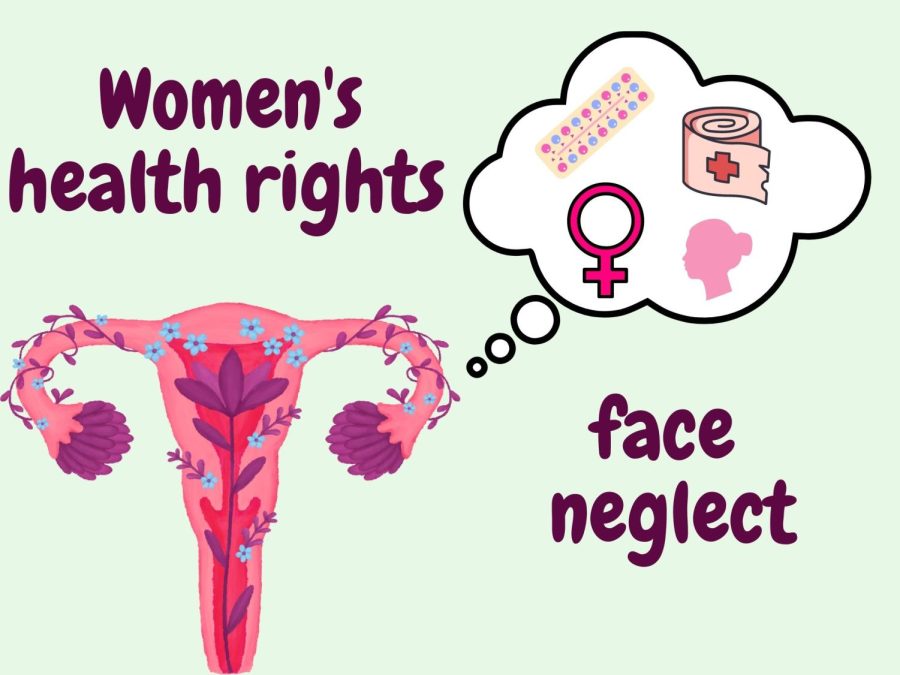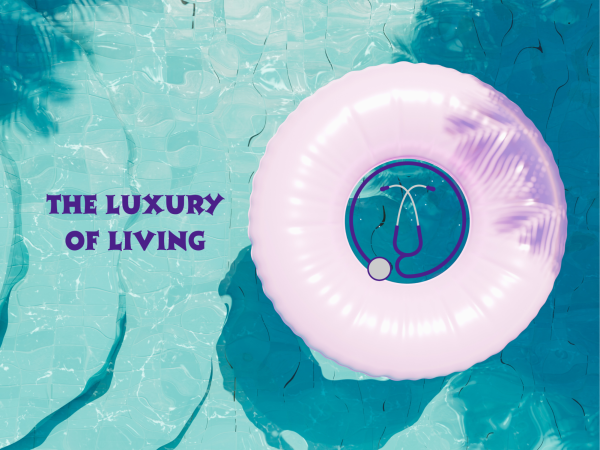Women’s health rights face neglect
After centuries of fighting for equal rights, women continue the struggle for fair opportunities. Despite claims that gender bias no longer dictates society, women all around the world suffer as a result of this phenomenon. “Social media highlights these issues, and I’ve heard lots of women’s experiences with this prejudice on TikTok or Instagram. Women frequently suffer from some type of reproductive health issue and doctors attempt to judge them off of a male model, but this doesn’t help find the root of the issue. Hopefully eventually women will be taken more seriously and become more educated about their own bodies,” junior Selina Smith said.
May 10, 2022
In 1977, a Food and Drug Administration (FDA) policy recommended excluding women of childbearing age from all drug trials, instead utilizing men to test new drugs. The majority of researchers remained reluctant to include women in their research due to paternalistic reasons and out of pure idleness. With women’s fluctuating hormones and occasional irregular cycles, capturing statistically significant results proves more difficult and expensive. However, this led to scientists neglecting womens’ health and physicians today continue to judge women against a male model for multiple conditions.
Women’s health issues do not only present themselves in past drug trials though, women of all ages do not possess the knowledge they should concerning their health. Physicians frequently fail to provide them with the support they need to properly diagnose and treat issues. Despite vouching for gender equality, countries all around the world do not acknowledge the issue and the wide umbrella of womens’ health regularly suffers neglect.
“Historically, although this got better, the main funding bodies like the Medical Research Council, the National Institutes of Health, and the Wellcome Trust didn’t particularly favor reproductive health research. I think it’s changing now, but for a long time the panels were made up of men who weren’t aware of reproductive health research. A lot of funding went to conditions which either affected both men and women, or just men,” University of Edinburgh professor of gynecology and reproductive sciences Andrew Horne said.
“The Girl Who Cried Pain,” a study pointing out gender bias, displays itself in pain management, explaining the numerous ways women suffer as a result of prejudice in the medical field. The study proved that Yentl syndrome, which describes the phenomenon where women remain misdiagnosed and poorly treated unless their symptoms align with that of a man, truly integrated itself into hospitals and the minds of healthcare providers. Healthcare workers treat female patients less seriously as their male counterparts. More frequently than not, a woman’s pain may receive a diagnosis of simple anxiety or a panic attack.
Joe Fassler, writer for The Atlantic, relayed his wife’s traumatic story about physicians neglecting her severe pain, abandoning her for other patients and mistreating her for an excessive amount of time. Despite clearly undergoing an unknown, serious affliction, doctors brushed her to the side and attempted to diagnose her without any tests. Thousands of women can relate to this story, and develop a fear of hospitals and possibly the healthcare industry as a whole.
“It’s hard to tease out whether it’s simply implicit bias – which all of us have – or whether it’s the way we judge women and pain in terms of their presentation for different clinical conditions,” San Francisco General Hospital Doctor Esther Chen said.
Birth control, another major influence on womens’ health, ignites a number of side effects that society now deems normal. Everyone accepts the common complications such as weight gain and irregular menstrual cycles, but numerous women experience long-term, serious issues that they frequently ignore. Since the pill contains synthetic hormones that alter the patient’s body, the medication can affect all women in different ways. Depression, migraines and painful intercourse can all result from birth control but a large portion of users push the side effects aside, convincing themselves that the reactions occur in everyone.
While America preaches the importance of individuals maintaining control of their own voice and bodies, a decent portion of the country appears content on controlling women’s bodies. Abortion laws, a controversial topic that evokes plenty of emotion, vary from state to state, resulting in several women unable to make decisions regarding their pregnancy. Lawmakers base their decisions, such as the Texas Heartbeat Act, on religion and emotion rather than facts. They attempt to control womens’ bodies without any understanding of how female anatomy works and how a fetus grows over the pregnancy term. After a recently leaked draft opinion from the Supreme Court regarding abortion laws, women realized that after years of fighting for their rights, they still do not own the freedom they desperately hoped to.
Topics regarding women’s health do not receive the attention they should in school, leaving young girls confused about their own anatomy. Numerous women do not gain any formal education on their body processes and the normal occurrences in life, such as different types of bodies and sexual education. Schools frequently dismiss the topics, and since individual states can choose whether or not they want to teach their students about reproductive health, the topic does not experience much exposure. Girls frequently grow up without understanding how their bodies work, and schools present no intentions of fixing the issue, leading to insecurities and body image issues. Women’s rights, once again, receive neglect and the majority of society remains ignorant about women’s anatomy.
The present patriarchy dictates society and repeatedly punishes women by controlling their rights and belittling them, as shown in “The Girl Who Cried Pain” study. Men set female standards, causing them to suffer in both the healthcare industry and in politics. This trend began decades ago and currently shows no signs of dissipating.
“While I did get some kind of education about the basics, such as a period and how conception happens, I think me and my peers all agree that most schools don’t do a great job teaching the topics. Just a couple days going over the topics is not enough, especially when it’s such a big part of our lives,” senior Jadyn Payne said.



















